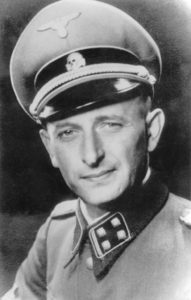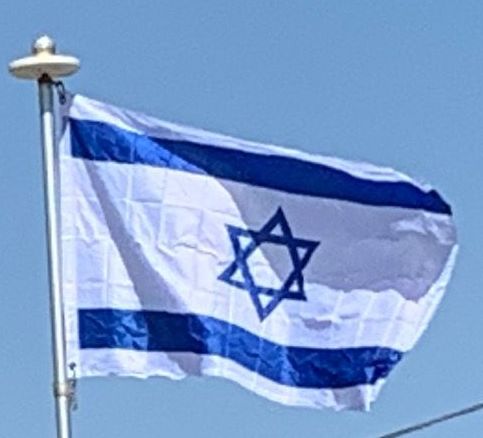During the 1950s, Israel was frequently attacked by Palestinian fedayeen, nearly always against civilians, mainly from the Egyptian-occupied Gaza Strip, leading to several Israeli counter-raids. In 1956, the United Kingdom and France aimed at regaining control of the Suez Canal, which the Egyptians had nationalized. The continued blockade of the Suez Canal and Straits of Tiran to Israeli shipping, together with the growing amount of Fedayeen attacks against Israel’s southern population, and recent Arab grave and threatening statements, prompted Israel to attack Egypt. Israel joined a secret alliance with the United Kingdom and France and overran the Sinai Peninsula but was pressured to withdraw by the UN in return for guarantees of Israeli shipping rights in the Red Sea via the Straits of Tiran and the Canal. The war, known as the Suez Crisis, resulted in significant reduction of Israeli border infiltration.

In the early 1960s, Israel captured Nazi war criminal Adolf Eichmann in Argentina and brought him to Israel for trial. The trial had a major impact on public awareness of the Holocaust. Eichmann remains the only person executed in Israel by conviction in an Israeli civilian court. During the spring and summer of 1963 Israel was engaged in a now declassified diplomatic standoff with the United States due to the Israeli nuclear program.
Since 1964, Arab countries, concerned over Israeli plans to divert waters of the Jordan River into the coastal plain, had been trying to divert the headwaters to deprive Israel of water resources, provoking tensions between Israel on the one hand, and Syria and Lebanon on the other. Arab nationalists led by Egyptian President Gamal Abdel Nasser refused to recognize Israel, and called for its destruction. By 1966, Israeli-Arab relations had deteriorated to the point of actual battles taking place between Israeli and Arab forces. In May 1967, Egypt massed its army near the border with Israel, expelled UN peacekeepers, stationed in the Sinai Peninsula since 1957, and blocked Israel’s access to the Red Sea. Other Arab states mobilized their forces. Israel reiterated that these actions were a casus belli and, on 5 June, launched a pre-emptive strike against Egypt. Jordan, Syria and Iraq responded and attacked Israel. In a Six-Day War, Israel defeated Jordan and captured the West Bank, defeated Egypt and captured the Gaza Strip and Sinai Peninsula, and defeated Syria and captured the Golan Heights. Jerusalem’s boundaries were enlarged, incorporating East Jerusalem, and the 1949 Green Line became the administrative boundary between Israel and the occupied territories.
Following the 1967 war and the “Three No’s” resolution of the Arab League and during the 1967–1970 War of Attrition, Israel faced attacks from the Egyptians in the Sinai Peninsula, and from Palestinian groups targeting Israelis in the occupied territories, in Israel proper, and around the world. Most important among the various Palestinian and Arab groups was the Palestinian Liberation Organization (PLO), established in 1964, which initially committed itself to “armed struggle as the only way to liberate the homeland”. In the late 1960s and early 1970s, Palestinian groups launched a wave of attacks against Israeli and Jewish targets around the world, including a massacre of Israeli athletes at the 1972 Summer Olympics in Munich. The Israeli government responded with an assassination campaign against the organizers of the massacre, a bombing and a raid on the PLO headquarters in Lebanon.
